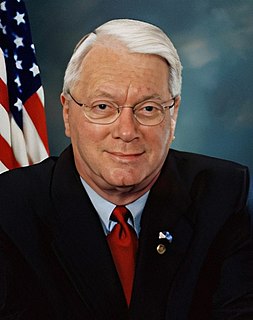A Quote by P. J. O'Rourke
Farm policy, although it's complex, can be explained. What it can't be is believed. No cheating spouse, no teen with a wrecked family car, no mayor of Washington, D.C., videotaped in flagrante delicto has ever come up with anything as farfetched as U.S. farm policy.
Related Quotes
On the one hand, the Republicans are telling industrial workers that the high cost of food in the cities is due to this government's farm policy. On the other hand, the Republicans are telling the farmers that the high cost of manufactured goods on the farm is due to this government's labor policy. That's plain hokum. It's an old political trick: "If you can't convince 'em, confuse 'em." But this time it won't work.
A farm regulated to production of raw commodities is not a farm at all. It is a temporary blip until the land is used up, the water polluted, the neighbors nauseated, and the air unbreathable. The farmhouse, the concrete, the machinery, and outbuildings become relics of a bygone vibrancy when another family farm moves to the city financial centers for relief.
It's a sad indication of where Washington has come, where policy differences almost necessarily become questions of integrity. I came to Washington in the late '70s, and people had the ability in the past to have intense policy differences but didn't feel the need to question the other person's character.
Target prices? How that works? I know quite a bit about farm policy. I come from Indiana, which is a farm state. Deficiency payments - which are the key - that is what gets money into the farmer's hands. We got loan, uh, rates, we got target, uh, prices, uh, I have worked very closely with my senior colleague, (Indiana Sen.) Richard Lugar, making sure that the farmers of Indiana are taken care of.
The Cubs, we built one of best farm systems - I think for a while there, it was the best farm system in baseball. And that was great. It got a lot of attention. But we didn't want the credit for the farm system. What we wanted was to see if we could do the tricky part, which was turn a lauded farm system into a World Series champion.


































